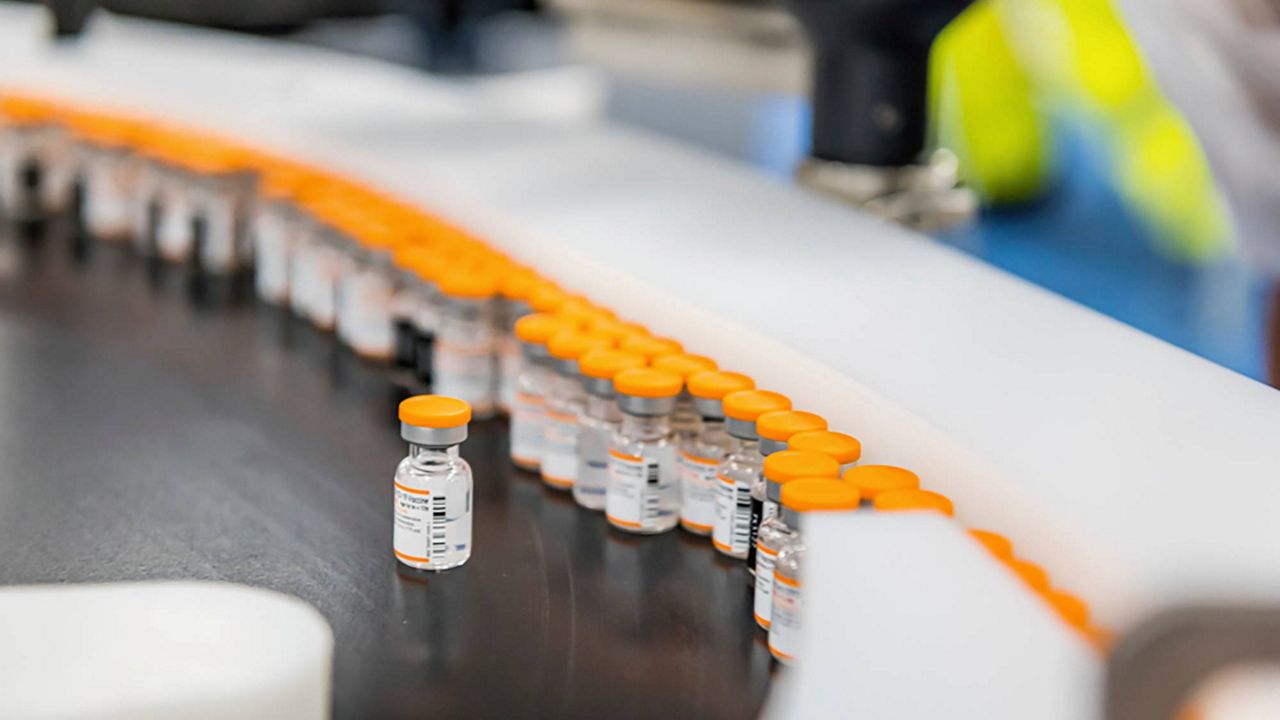Children as young as 5 can now get Pfizer's coronavirus vaccine.
In North Carolina, dozens of pharmacies, doctor's offices and hospitals already have shots ready to go. The vaccine doses are different for children 5 to 11 years old, so not all vaccine sites will be open to kids.
What You Need To Know
- Federal regulators just approved the Pfizer vaccine for 5 to 11-year-olds
- Children in the 5-11 age group will get a smaller dose of the vaccine
- Kids may experience similar side effects as adults: fever, fatigue and muscle pain
- North Carolina DHHS has a list of sites available to vaccinate children age 5-11
"Getting school-age kids vaccinated will help keep them safe to play sports, attend events, be with friends and do all of the other things kids love to do that they may currently be missing out on," North Carolina Department of Health and Human Services Secretary Dr. Mandy Cohen said.
"I will be getting my daughters vaccinated this weekend. Don’t wait to vaccinate your kids, so they get back to safely being with family and friends, especially as we head into the holiday season," Cohen said in a statement Wednesday morning.
DHHS has a list of most sites where 5 to 11-year-olds can get vaccinated. You can find the closest vaccination sites for children here.
The Food and Drug Administration and the Centers for Disease Control and Prevention gave emergency approval to the vaccine, finding it is safe and effective for children 5 and older.
Five to 11-year-olds will get a dose about a third of what's given to teens and adults.
"Children are vulnerable to the COVID-19 virus just like everyone else," Cohen said. "The authorization of the Pfizer-BioNTech vaccine provides a safe, tested way to protect them from serious illness and provide healthier, happier experiences in and outside of the classroom."
Younger kids could see the same side effects as adults, including fever or muscle aches, said Dr. Peyton Thompson, a pediatrician with UNC Health.
“One thing to prepare for is to make sure your child has about a day or so for potential recovery after the vaccine,” she said. Thompson said parents should not pre-treat kids with Tylenol or ibuprofen before they get their vaccines, but it would be good to have some on hand in case they don’t feel well after.
The side effect that has gotten the most attention is myocarditis, which is a swelling of the heart.
“It’s a very rare side effect that we’re mainly seeing in older teenage boys,” Thompson said. She said the risk of getting myocarditis from the vaccines, however, is actually much lower than getting it from COVID-19.
“To me this is really a no brainer, the vaccines are safe,” said Dr. David Wohl, an infectious disease specialist who has been helping lead the vaccination campaign at UNC Health. “We tried it out on half of humanity before we gave it to 5 to 11-year-olds. We gave it to half the people on the planet — you can’t do much better than that to prove how safe and effective it is.”
While children are less vulnerable to the most severe effects of the coronavirus, it can still be deadly for young kids. The delta variant, which fueled the latest spike in COVID-19 cases, hit kids harder than earlier variants.
"During a 6-week period in late June to mid-August, COVID-19 hospitalizations among children and adolescents increased fivefold," the CDC said in a statement.
Public health officials have also worried about children's role in spreading the virus.
“Together, with science leading the charge, we have taken another important step forward in our nation’s fight against the virus that causes COVID-19. We know millions of parents are eager to get their children vaccinated and with this decision, we now have recommended that about 28 million children receive a COVID-19 vaccine," CDC Director Dr. Rochelle Walensky said Tuesday.
"As a mom, I encourage parents with questions to talk to their pediatrician, school nurse or local pharmacist to learn more about the vaccine and the importance of getting their children vaccinated,” she said.





